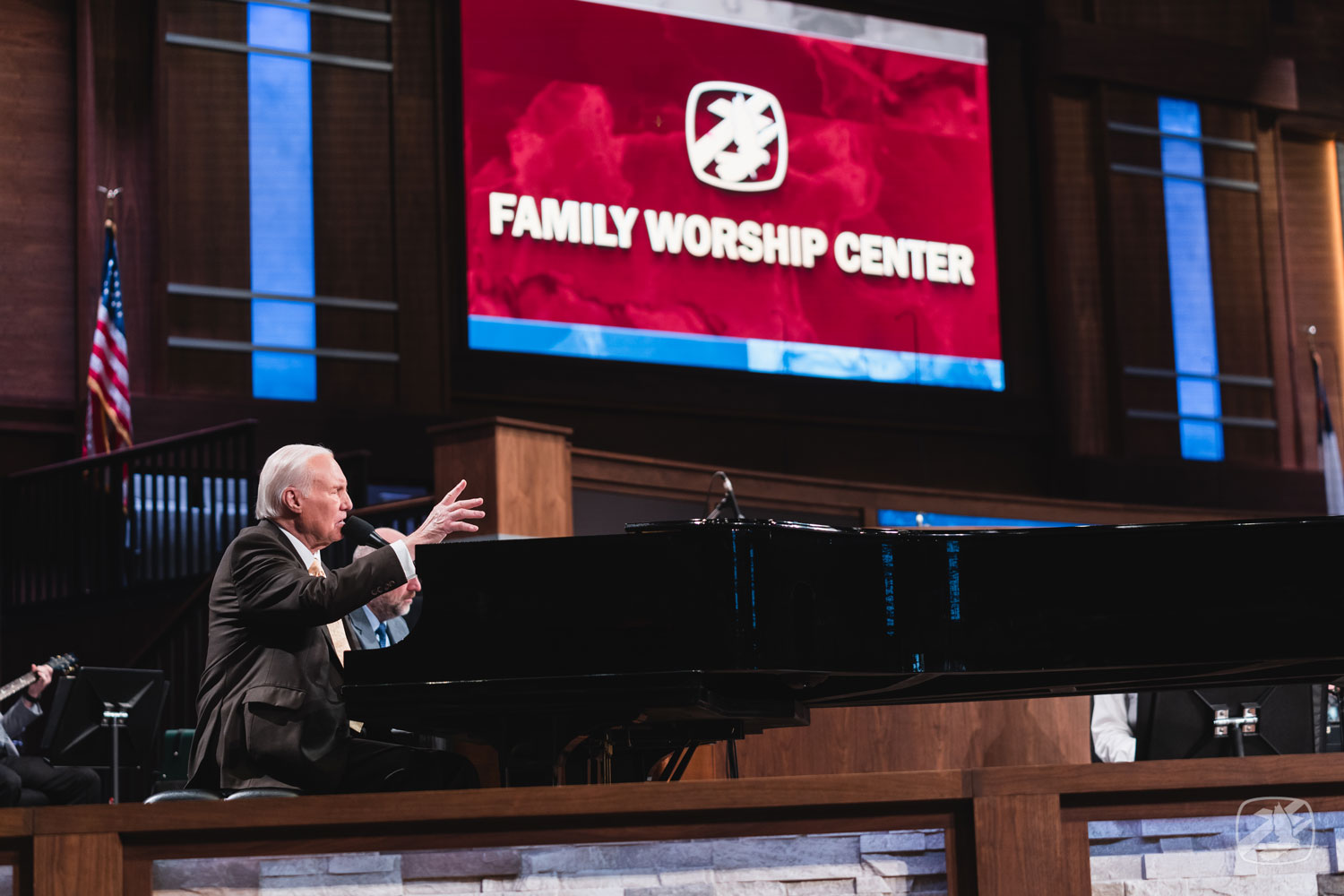
(RNS) — Some of my best friends are Christian ministers.
Could I pander any better than that?
My colleagues and I forged these friendships — not despite our theological differences, but because of them. Our differences are a sidebar because we share a larger worldview of service to both a community and a tradition.
Most of those clergy friendships are with mainstream, liberal Christian ministers, but I have also had relationships with evangelical ministers. We certainly disagree theologically, but we have great fun talking about methods of reaching out to our people. They have been among my teachers.
When I learned of the death of the Rev. Jimmy Swaggart, at the age of 90, I tried to imagine what a relationship with him would have been like. I can imagine us talking about what it means to be a minister and to manage a religious community.
We lived in entirely different worlds — a world that “The Righteous Gemstones” satirized. In 1986, for example, I earned about $40,000. In that same year, he earned an estimated $142 million.
Swaggart fell victim to his own hypocrisy and public disgrace, and his career never quite recovered. But his teachings constitute a master class in how some Christians relate to Judaism, how Jews can respond, and how Jews and Christians can walk and work together to heal the fissures that still exist.
On the one hand, Swaggart praised Judaism. In 1986, for example, after a speech at his Family Worship Center, he said:
“I love the Jewish people. … When you have true love for a people … it comes as an abrupt shock when they don’t reciprocate …”
Why didn’t the Jews reciprocate Swaggart’s love adequately? Perhaps it was because he came after the television producer Norman Lear’s brand of Judaism:
“Norman Lear, I’m told, is an atheistic Jew. There’s nothing in the world any greater than to be a Jew, and nothing in the world any worse than being an atheistic Jew.”
Atheist or not, Lear was one of the most iconic secular Jewish figures of our time. He contributed immeasurably to our culture.
Christians need to understand a very simple, powerful truth: Judaism is the religion of the Jewish people. It is simultaneously a religion and a people. For us, it’s “all in the family.”
But what was the meaning of the Jewish people to Swaggart? In his words:
“The Jewish people were raised up for the very purpose of bringing the Son of God into the world. Unfortunately, they did not recognize Him when He came, or, if they did, they refused to admit it and demanded that He be crucified as an imposter. For that act, they have suffered untold agony for nearly 2,000 years and have been scattered all over the world.”
To him, the entire purpose of the Jewish people was merely to have been “the womb of the Messiah.” Beyond that, there is not much use for us. And, beyond that, we have the old deicide charge — that the Jews, at the very least, collaborated in the crucifixion of Jesus of Nazareth, and their suffering over the ages is apt punishment for their rejection of his message.
This is classic Christian theological anti-Judaism. The vast majority of Christians have abandoned this toxic theology. But some, alas, have not. It is the ever-present next horizon in interfaith conversation.
Then, there were Swaggart’s views on Israel. He said in June 2024:
“All Jews in the world will accept Christ as their Savior and their Lord, realizing that the one whom they crucified was, in reality, their Messiah. … The formation of Israel as a state was and is a harbinger of this coming event. Truly, as it has been stated, Israel is God’s prophetic time clock.”
Like other evangelical preachers, Swaggart spoke and wrote about the coming battle of Armageddon — “a battle designed to completely destroy Israel; however it is also designed for a far more important reason. It is for the Evil One, Satan himself, to become the god of the Universe …”
This is what many — but not all — Christian Zionists believe. Christian lobbyist Ralph Reed once told me that most Christian Zionists he knows support Israel because of the words of Genesis 12, God’s call to Abram/Abraham: “I will bless those who bless you. And curse the one who curses you.”
” … And, Rabbi,” he said to me, “We want that blessing!”
This is the public face of Christian Zionism. I welcome such support, but not all of it is kosher. Some Christian Zionists see the establishment of the state of Israel as the first step in a great, eschatological drama that includes an apocalyptic war at the end of time.
Why should we worry about that now? This theology has present-day, real-world implications. It aligns itself with the worst versions of Jewish Zionism: an apocalyptic longing for the entirety of the land of Israel, and some very problematic policies.
Christian Zionists want God’s blessing, as promised to Abraham? Great. Come and get it. There is enough of God’s love to go around.
But, to Swaggart’s disciples and colleagues: Don’t make the Jewish people a plaything in your end-of-days fantasy. You think that Oct. 7, 2023, had theological meaning for you? You are free to do so, of course. But Israel means the promise of life, not fantasies of death.
Swaggart was certainly one of the most colorful and most problematic religious figures in recent American history. I would like to imagine God greeting him and saying: “Jimmy, Jimmy, you got a whole lot of stuff wrong. … But I still love you.”
